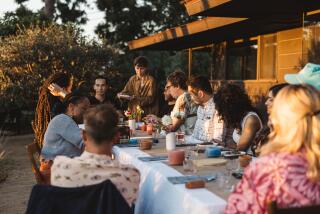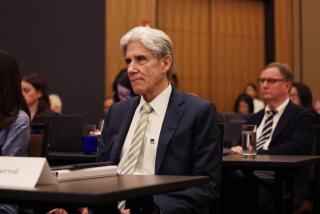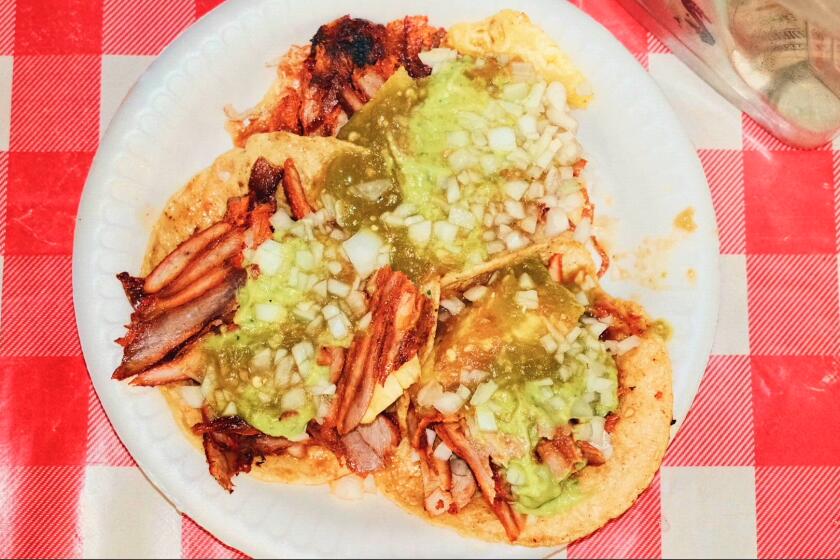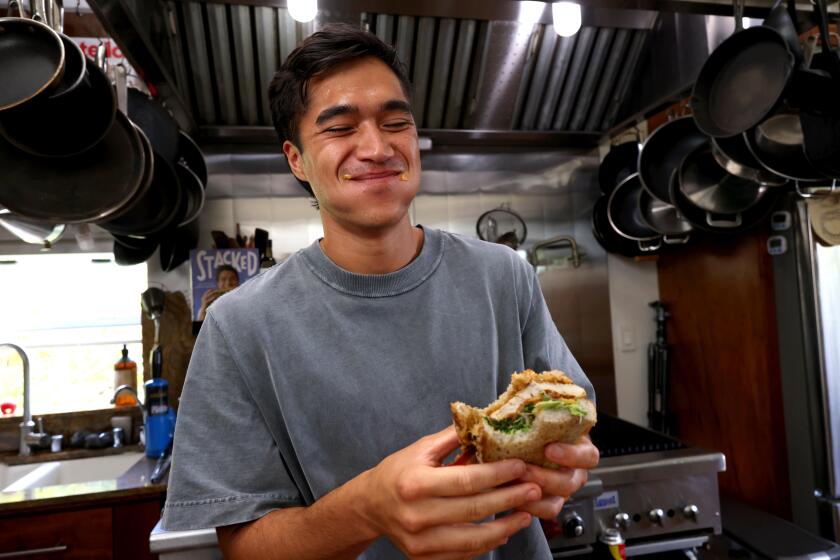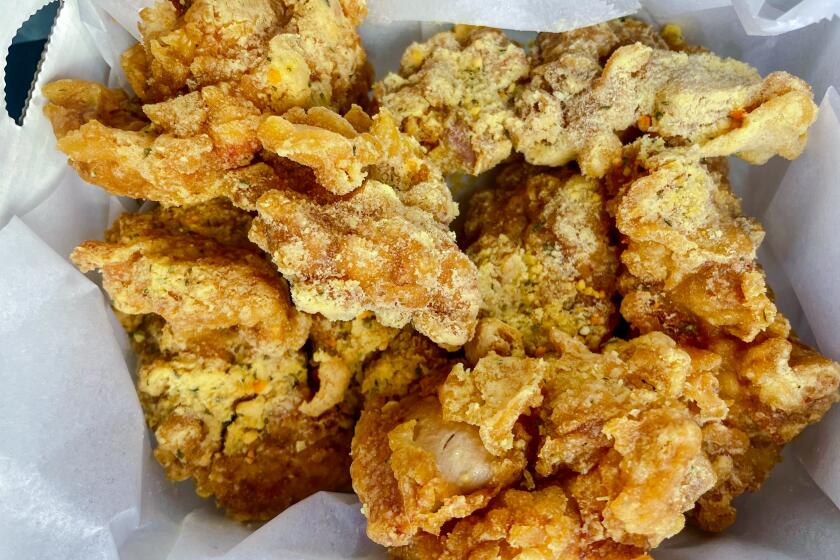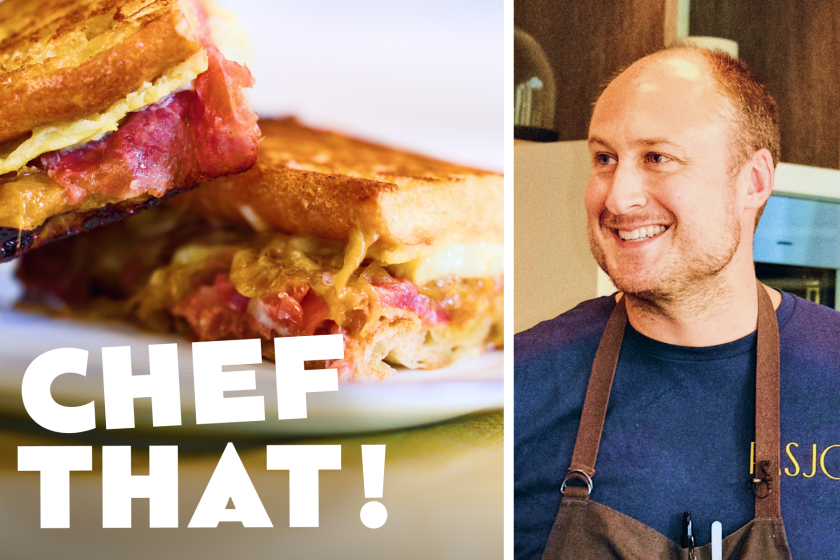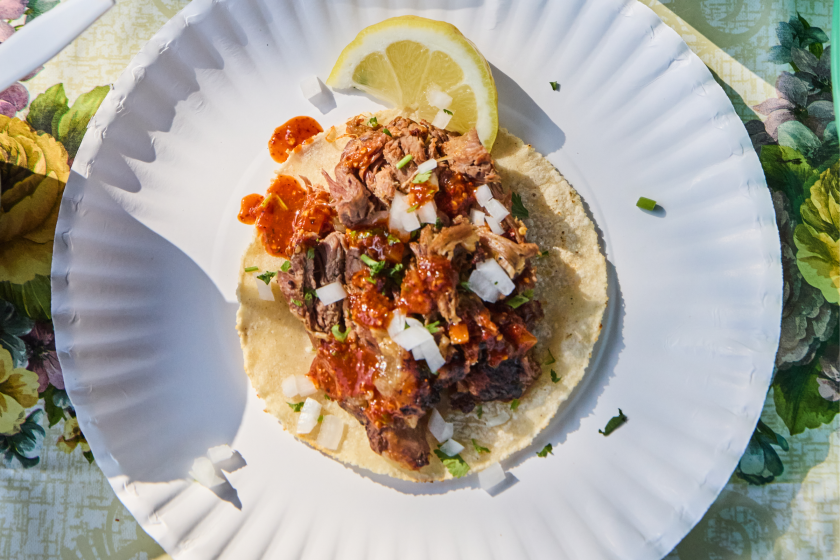UCLA launches an institute dedicated to food studies
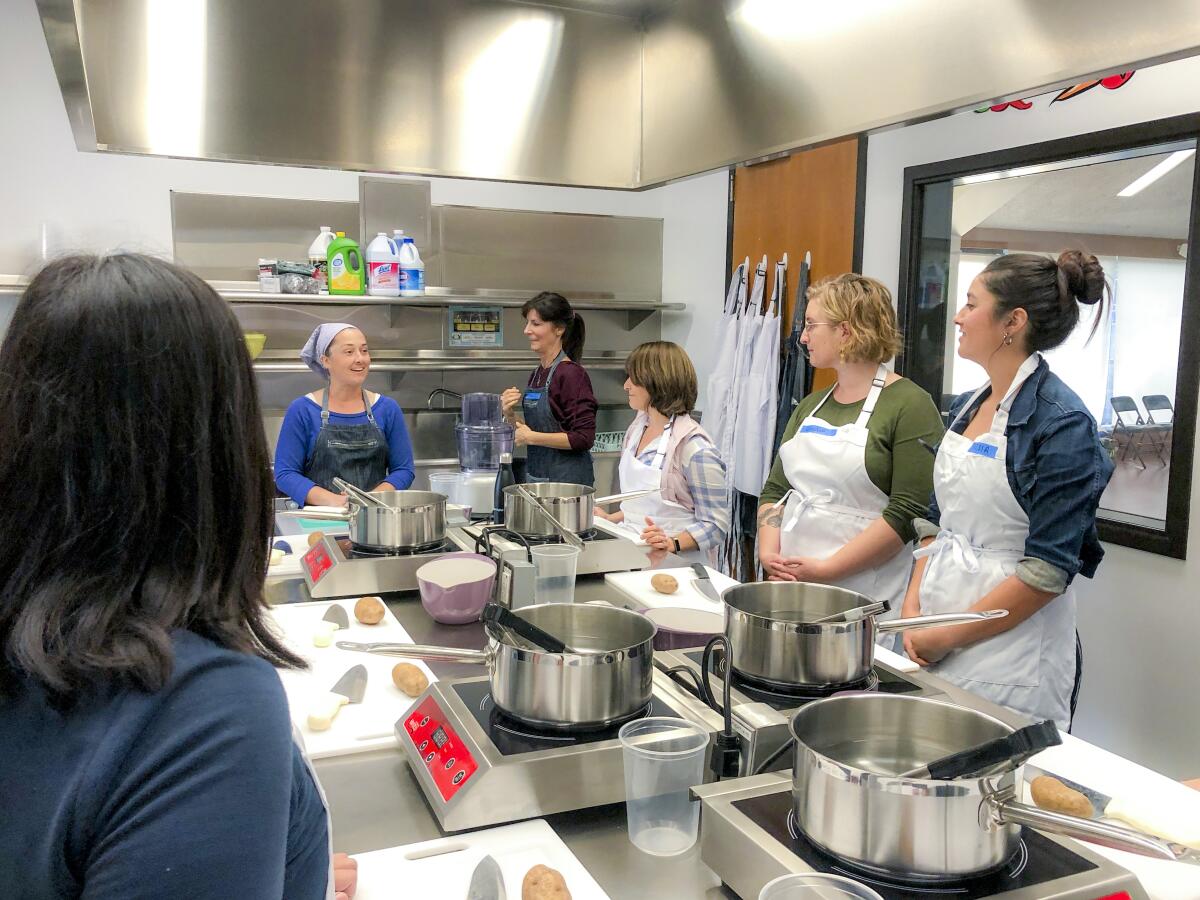
In the age of the internet, it can be difficult to discern fact from fiction. Especially, Ginny Steel says, as it pertains to food.
“There’s a lot of mythology out there when it comes to nutrition,” the UCLA university librarian said, pointing specifically to topics of health and wellness and fad diets. Information on food and its reach — into policy, into community, into religion, into the daily choices we each make — is vast and sometimes complex, she says. Critical thinking is key.
For the record:
10:53 a.m. Jan. 27, 2022Alexandra Solodkaya, the new food librarian, will continued to be housed in the biomedical library.
Fighting misinformation and delving into the far-reaching topic of food is, in part, why UCLA is launching a food institute, and it has just hired the nation’s first endowed, food-focused university librarian in the process.
On Monday, the university announced the establishment of the UCLA Rothman Family Institute for Food Studies in the Division of Undergraduate Education, which will serve as the school’s umbrella organization for an already substantial schedule of interdisciplinary food courses and programs including food law, meal prep, nutrition and science pertaining to food. With this move, UCLA joins UC Berkeley, UC Davis, Princeton, Cornell, Tufts and a handful of other national universities and colleges with designated food institutes and hyper-focused programs, and paves the way for a range of new classes, roles and collaborative studies — some unique in the field.
An anonymous $13.5 million gift will go toward funding a new chef-in-residence program this spring, which will annually host a duo of professional chefs who will lead students in hands-on cooking classes and lend their expertise to other courses; stocking and permanently staffing the Teaching Kitchen facilities; and the hiring of Alexandra Solodkaya, the new Rothman Family Food Studies librarian. Solodkaya will be available to aid staff, students, faculty, those unaffiliated with UCLA who are searching for answers and resources pertaining to food and nutrition — and anyone trying to cut through the misinformation noise.
Solodkaya will help the food-curious “to really evaluate the sources of information they’re using in their work,” says Steel, who worked to create the new role, “and to understand whether they’re getting really solid science-based information or whether it’s just somebody writing something that’s accidentally incorrect or intentionally incorrect.”
The school’s extensive system of libraries has supported food-studies minors, graduate students and those who are sampling the courses, pulling pertinent published studies and even building a collection of cookbooks. But UCLA has never hired an endowed librarian to focus only on the topic of food (nor has any other university). Solodkaya, of the school’s biomedical library, also will be invited to speak in food-related courses, theoretically inspiring cross-discipline discussion, a tenet of the food studies institute.
“It’s a collective-impact model where you bring a bunch of people together,” said Wendelin Slusser, the associate vice provost of UCLA’s Semel Healthy Campus Initiative Center and an advising member of the new institute. “They leave their personal agenda at the door but they bring their strengths, and they have a common goal, and magic happens and it’s happened so many times — that’s how the Teaching Kitchen happened.”
While the pediatrician and nutritionist’s primary home on campus is the school of medicine, her love for and curiosity about the intersection of health and food helped spur an interdisciplinary food summit in 2015, which inspired a range of new food courses, degree programs and what would eventually become the university’s new institute.
“Interdisciplinary research [and] education is not your traditional approach from a university,” Slusser said. “It’s normally very siloed, and so this is legitimizing this. It’s really giving a signal that UCLA believes in this and agrees with it, and there’s a demand for it from the students and the faculty.”
A handful of new classes was approved shortly before the pandemic, pitched from across UCLA disciplines, including Eating Society, from sociology; Food Activism in Los Angeles: Narrating Pasts, Imagining Futures, from world arts and cultures; and Food Molecules, Microbes and Environments, from the chemistry and biochemistry departments, all of which could fall under the umbrella of the institute.
Some of the most-demanded food courses in the last decade have been led by professor and biophysicist Amy Rowat, whose hands-on classes often explore the intersection of science and food and have helped shape UCLA’s current food programs and initiatives.
Rowat, who is also the chair of food studies, will oversee the new chef-in-residence program, envisioning two chefs who will appear on campus multiple times a week to speak with students and engage through the Teaching Kitchen. She hopes they will also develop joint research projects with faculty from departments across the campus.
“From my own perspective, I founded this science and food program at UCLA, which has been a popular course and public event, but in order to really take it to the next level and ensure that it’s going to continue, that it doesn’t just hinge on me, that’s how I see the food studies institute is really a game changer,” Rowat said.
More to Read
Eat your way across L.A.
Get our weekly Tasting Notes newsletter for reviews, news and more.
You may occasionally receive promotional content from the Los Angeles Times.
